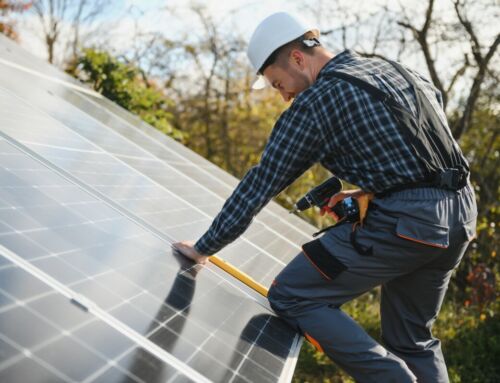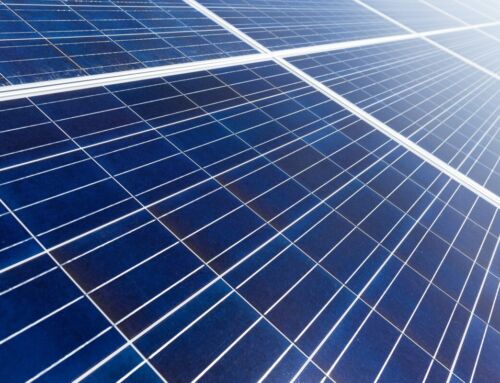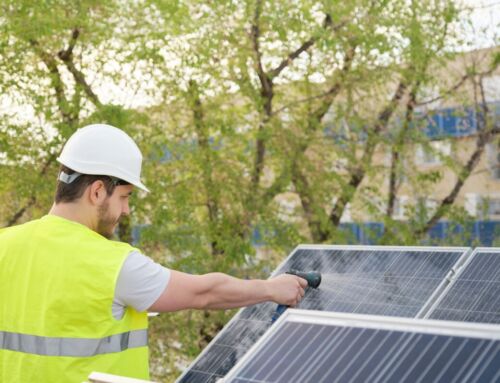Introduction to the Costs for Solar Energy
The recent trend towards renewable energy has gained significant traction in recent years, with solar energy at the forefront of this transformation. As homeowners and businesses seek sustainable and cost-effective solutions, understanding the costs for solar energy becomes crucial. This article will look into the various expenses associated with solar energy, solar panels, the benefits of investing in solar power, and how NewSolarQuotes.com can help you navigate this journey toward a greener future.
The Initial Investment: Solar Panels and Installation
Solar Panels: The solar panels are the cornerstone of any solar energy system. The costs for solar energy and panels fluctuates based on several factors, including the type of panels, their efficiency, and the brand. On average, residential solar panels cost between $2.50 and $3.50 per watt. A typical home, which requires a 6-kilowatt system, translates to an initial cost of $15,000 to $21,000 before any incentives or rebates.
Types of Solar Panels: The three main types of solar panels are monocrystalline, polycrystalline, and thin-film. Monocrystalline panels have high efficiency and sleek appearance and are typically the most expensive. Polycrystalline panels usually showcase less efficiency but are more affordable, while thin-film panels are the least efficient but offer flexibility and unique applications. Choosing the right type of panel can impact your solar energy system’s overall costs and efficiency.
Installation Costs: Installing solar panels involves more than just placing them on your roof. It includes mounting hardware, inverters, wiring, and labor costs. Installation costs can range from $5,000 to $10,000, depending on the complexity of the installation and the region. Additionally, if your roof needs reinforcement to be able to withstand the panels, this can add to the overall costs for solar energy.
Incentives and rebates: Many governments offer incentives, subsidies, and rebates to promote the normalization of solar energy. In the United States, the federal solar tax credit offers homeowners the chance to deduct 26% of the cost for solar energy systems from their federal taxes. Additionally, state and local incentives can further reduce the initial investment. For example, some states offer rebates that can cover up to 20% of the installation costs, and some utilities provide performance-based incentives (PBIs) that pay solar system owners based on the energy their system produces.
Long-term Financial Benefits
Energy Savings: The main advantage of solar energy is the massive reduction in electricity bills. Solar power systems can generate substantial savings over their lifetime. On average, homeowners are able to save between $10,000 and $30,000 over 20 years, depending on their location and energy consumption. The savings can be even more substantial in areas with high electricity rates. By generating electricity, you reduce your dependence on utility and electricity companies and protect yourself from rising energy costs.
Increase in Property Value: Homes that are equipped with solar panels often see an improvement in property value. Studies have shown that solar energy systems can add approximately 4% to a home’s value. This means a home valued at $300,000 could see an increase of $12,000 with the addition of solar panels. Additionally, homes that have solar panels sell faster than those without, as buyers increasingly seek energy-efficient and sustainable properties.
Net Metering: Many utility companies offer various net metering programs, which give homeowners the option to sell excess solar power to the grid. This reduces electricity bills further and can generate additional income, offsetting the costs for solar energy. Net metering policies differ according to the state and utility, but they generally provide credits for the excess electricity your solar system produces, which can be used to offset future electricity use.
Maintenance and Operational Costs
Minimal Maintenance: One of the appealing aspects of solar energy systems is their minimal maintenance requirements. Solar panels are designed to withstand and work well under various weather conditions and typically come with 20- —to 25-year warranties. Regular maintenance involves occasional cleaning and periodic inspections, which the homeowner or maintenance service can do. Ensuring that your panels are debris-free and checking for shading issues can help maintain optimal performance.
Inverter Replacement: While solar panels have a long lifespan, inverters, which convert solar power into usable electricity, may need replacement every 10 to 15 years. The cost of replacing an inverter can range from $1,000 to $2,500. Different types and categories of inverters, such as string inverters and microinverters, have different costs and lifespans. Investing in a high-quality inverter can improve your solar energy system’s overall efficiency and reliability.
Battery Storage: Incorporating a battery storage system can provide additional benefits for those looking to maximize their solar investment. Battery storage lets you store excess solar energy for use when the sun isn’t shining, such as at night or during power outages. The cost of a battery storage system and related equipment can range from $5,000 to $10,000, but it can provide increased energy independence and further reduce your reliance on the grid.
Financing Options for Solar Energy
Cash Purchase: Payment made for a solar energy system can result in the highest long-term savings, as it eliminates financing costs. However, the initial outlay can be substantial.
Solar Loans: Many financial institutions offer loans specifically for solar energy systems. These loans can spread the cost over several years, making solar energy more accessible. Monthly payments on solar loans are often lower than the savings on electricity bills, leading to immediate net savings. Solar loans come in various forms, including secured loans, which use your home as collateral, and unsecured loans, which do not.
Leasing and Power Purchase Agreements: Leasing solar panels or entering a PPA allows homeowners to add solar panels to their property with little to no upfront cost. Instead, they pay a monthly fee or a rate for the electricity generated. While this reduces immediate financial burden, the long-term savings are typically less than those achieved through a cash purchase or solar loan. Leasing and PPAs can be a good option for homeowners who do not qualify for solar loans or prefer to avoid ownership and maintenance responsibilities.
Environmental and Social Benefits
Reduction in Carbon Footprint: Solar energy is a clean and perpetual source of power that significantly reduces carbon emissions. By switching to solar power, the average household can offset approximately 100,000 pounds of carbon dioxide over 20 years. This is equivalent to planting over 1,000 trees or avoiding burning over 50,000 pounds of coal.
Energy Independence: Investing in solar panels reduces reliance on fossil fuels and helps you achieve energy independence. This can lead to greater stability in energy prices and reduced vulnerability to geopolitical conflicts and supply disruptions. By producing your electricity, you gain greater control over your energy future and reduce the impact of global energy market fluctuations.
Job Creation: The solar energy industry has been a significant driver of job creation. From manufacturing to installation and maintenance, the growth of solar power supports local economies and provides numerous employment opportunities. In the United States alone, the solar industry employs over 240,000 people, with jobs ranging from solar panel installers to engineers and sales representatives.
How NewSolarQuotes.com Can Help
Navigating the costs for solar energy can be complex, but NewSolarQuotes.com is here to help. Our website, NewSolarQuotes.Com, is dedicated to helping customers find the best solar panel solutions tailored to their needs. We provide comprehensive quotes, ensuring you understand all investment aspects, from initial costs to long-term savings.
At NewSolarQuotes.com, we partner with reputable solar providers to offer competitive pricing and high-quality installations. We aim to make your shift to solar energy smooth and, as seamless and cost-effective as possible. Our platform allows you to compare quotes, access expert advice, and take advantage of exclusive incentives and rebates.
We understand that each customer’s needs and circumstances are unique, so we offer personalized consultations to help you make the best decision for your home or business. Our team is committed to staying up to date and providing accurate information and guidance throughout the entire process.
Conclusion
The costs for solar energy encompass various factors, from the initial investment made on solar panels and installation to long-term use and operational expenses. However, the financial and environmental benefits make solar power an attractive option for many homeowners and businesses.
Investing in solar panels can lead to energy savings, increased value in property, and a reduced carbon footprint. With the support of platforms like NewSolarQuotes.com and FreeSolarPowerQuotes.com, transitioning to solar energy becomes more accessible and affordable. By providing detailed quotes and expert guidance, NewSolarQuotes.com helps you make informed decisions and maximize the benefits of solar power.
Switching to solar energy is a financial decision and a commitment to a sustainable future. As costs for solar energy continue to decline and technology advances, there has never been a better time to invest in solar power. Start your journey today with NewSolarQuotes.com and join the growing use of solar energy.





